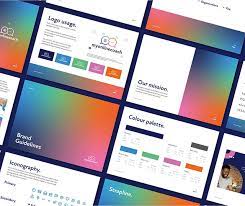The Importance of Website Design
Website design plays a crucial role in the success of any online business. It is not just about creating a visually appealing site; it is about crafting a user experience that engages visitors and converts them into customers. Here are some key reasons why website design is so important:
First Impressions Matter
Your website is often the first point of contact between your business and potential customers. A well-designed website creates a positive first impression and instils trust in your brand. On the other hand, a poorly designed site can drive visitors away before they even explore your products or services.
User Experience (UX)
A good website design focuses on providing an excellent user experience. This includes easy navigation, fast loading times, mobile responsiveness, and clear calls to action. A seamless user experience keeps visitors on your site longer and encourages them to take desired actions, such as making a purchase or contacting you.
Brand Identity
Your website is an extension of your brand identity. The design elements, colour scheme, typography, and imagery should all reflect your brand’s values and personality. Consistent branding across all channels helps reinforce brand recognition and build customer loyalty.
Search Engine Optimisation (SEO)
Effective website design goes hand in hand with SEO. Search engines favour websites that are well-structured, fast-loading, and mobile-friendly. By implementing SEO best practices in your design, you can improve your site’s visibility in search engine results and attract more organic traffic.
Competitive Advantage
In today’s competitive digital landscape, having a professionally designed website sets you apart from competitors with outdated or amateurish sites. A modern and functional website demonstrates that you are serious about your online presence and positions you as a leader in your industry.
In conclusion, investing in quality website design is essential for building a strong online presence and driving business growth. By prioritising user experience, brand identity, SEO, and staying ahead of the competition, you can create a website that not only looks great but also delivers results for your business.
Essential FAQs on Website Design: Importance, Costs, Key Elements, Mobile Optimisation, and User Experience
- What is website design and why is it important?
- How much does professional website design cost?
- What are the key elements of a well-designed website?
- How can I make my website mobile-friendly?
- Why is user experience (UX) crucial in website design?
What is website design and why is it important?
Website design encompasses the process of creating and structuring the visual elements, layout, and functionality of a website. It goes beyond aesthetics to include user experience, navigation, and overall usability. Website design is crucial as it serves as the digital face of a business, influencing how visitors perceive the brand and interact with its offerings. A well-designed website not only attracts and retains visitors but also enhances credibility, fosters trust, and drives conversions. By prioritising effective website design, businesses can establish a strong online presence, differentiate themselves from competitors, and ultimately achieve their digital marketing goals.
How much does professional website design cost?
When it comes to professional website design, the cost can vary significantly depending on various factors such as the complexity of the project, the features and functionality required, and the expertise of the design team. Generally, professional website design costs can range from a few hundred pounds to several thousand pounds. It is important to remember that investing in a well-designed website is an investment in your business’s online presence and brand image. While it may seem like a significant upfront cost, a professionally designed website can yield long-term benefits by attracting more visitors, increasing conversions, and enhancing your overall digital marketing efforts.
What are the key elements of a well-designed website?
When it comes to well-designed websites, several key elements play a crucial role in creating a successful online presence. These elements include intuitive navigation that guides users seamlessly through the site, responsive design that ensures optimal viewing across various devices, visually appealing aesthetics that reflect the brand identity, clear and compelling calls to action that prompt user engagement, fast loading times for improved user experience, and SEO-friendly structure to enhance visibility in search engine results. By incorporating these essential elements into website design, businesses can effectively engage visitors, build trust, and achieve their online goals.
How can I make my website mobile-friendly?
To make your website mobile-friendly, you can follow several key steps. Firstly, ensure that your website design is responsive, meaning it adapts seamlessly to different screen sizes and devices. This ensures that mobile users have a positive browsing experience without having to pinch and zoom. Secondly, optimise images and multimedia content for faster loading times on mobile devices. Implement touch-friendly navigation elements such as larger buttons and simplified menus to improve usability on smaller screens. Lastly, test your website on various mobile devices and use tools like Google’s Mobile-Friendly Test to identify and fix any issues that may hinder mobile usability. By prioritising these practices, you can enhance the mobile-friendliness of your website and cater to the growing number of users accessing the web on their smartphones and tablets.
Why is user experience (UX) crucial in website design?
User experience (UX) is crucial in website design because it directly impacts how visitors interact with and perceive a website. A well-crafted user experience ensures that visitors can easily navigate the site, find the information they need quickly, and complete desired actions effortlessly. By focusing on UX, website designers create intuitive interfaces, clear navigation paths, and engaging content that keep users engaged and satisfied. A positive user experience not only increases user retention and conversion rates but also enhances brand credibility and customer loyalty. Ultimately, prioritising UX in website design is key to delivering a seamless and enjoyable online experience for visitors, leading to long-term success for businesses.




